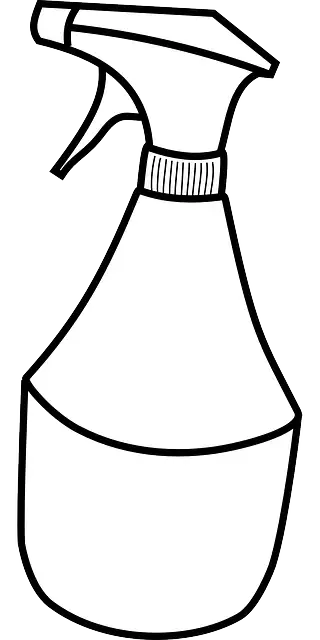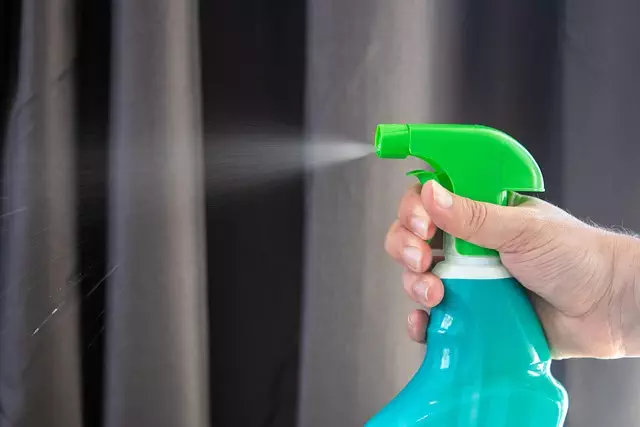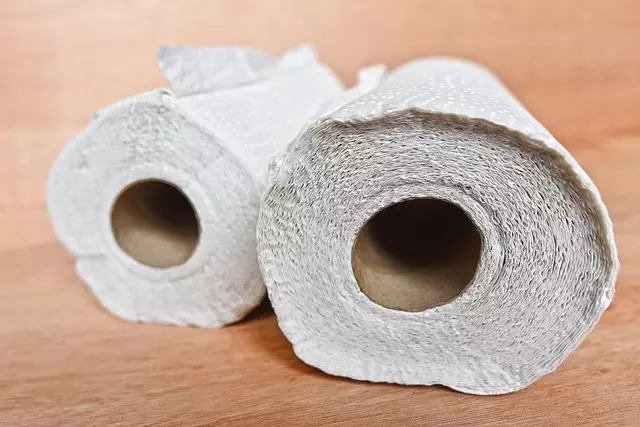Maintaining clean kitchen floors is paramount for hygiene, food safety, and preventing slip hazards in culinary environments. Different flooring materials require distinct cleaning approaches using tailored products and tools. Regular deep cleaning with natural solutions, good housekeeping practices, and preventative measures like floor coatings extend floor life. Commercial kitchens should adopt strict cleaning schedules, professional services, and advanced equipment to meet sanitation standards and ensure a safe space for food preparation.
Keeping your kitchen floor clean isn’t just about aesthetics; it’s crucial for hygiene and safety. Regular deep cleaning prevents bacteria buildup, reduces slip hazards, and maintains your space’s appeal. This comprehensive guide delves into the intricacies of kitchen floor care, covering various flooring types, essential tools, and effective cleaning methods. We explore natural solutions, common issues, preventive measures, and when to hire professional services for a spotless kitchen environment.
Understanding the Importance of Regular Kitchen Floor Cleaning

Maintaining a clean kitchen floor is more than just keeping your space visually appealing; it’s a crucial aspect of hygiene and food safety. Regular kitchen floor cleaning plays a vital role in preventing the spread of bacteria, viruses, and other germs that can cause illnesses. In this fast-paced culinary environment, where floors are constantly exposed to spills, splashes, and debris from cooking and preparation, keeping them clean isn’t just desirable; it’s essential for the well-being of your staff and customers.
Moreover, a dirty kitchen floor can lead to slippery surfaces, increasing the risk of accidents and injuries. Regular cleaning helps to remove grease, oil, and other slip hazards, ensuring a safer working environment. Proper kitchen floor cleaning also extends the life of your flooring by preventing damage from buildup and grime, saving you money in the long run on repairs or replacements.
Types of Kitchen Floors and Their Unique Cleaning Requirements

Kitchen floors play a pivotal role in the overall hygiene and aesthetics of any culinary space. They can vary greatly, each with its own specific cleaning needs. From tile and grout to hardwood and vinyl, understanding these types is key to effective kitchen floor cleaning.
Tile and grout floors, common in many commercial kitchens, require regular deep cleaning due to the pore depth of grout, which can trap grease and dirt. Hardwood floors, while adding a warm touch, demand delicate care to prevent water damage and wood finish erosion. Vinyl flooring, known for its durability, should be cleaned with suitable solutions to avoid fading or cracking. Each material necessitates tailored cleaning methods and products to ensure optimal results and longevity, ultimately contributing to the overall kitchen floor cleaning regimen.
Essential Tools and Equipment for Effective Kitchen Floor Cleaning

When it comes to efficient kitchen floor cleaning, the right tools and equipment make all the difference. A well-prepared cleaner’s arsenal ensures thorough disinfection and sparkle for even the busiest culinary spaces. For an effective clean, consider investing in a robust vacuum cleaner with powerful suction to lift dirt and debris from hard floors. A heavy-duty floor scrubber or mop is essential for tackling stubborn stains and grime, especially in commercial kitchens where food preparation occurs around the clock.
Don’t underestimate the power of specialized kitchen cleaning tools like floor scrapers and squeegees for removing stuck-on residue. Additionally, microfiber cloths and mops are ideal for drying and polishing floors, leaving them streak-free and providing a hygienically clean surface. Remember, proper protective gear, including gloves and aprons, is crucial for safety and maintaining the health of your staff or yourself while handling cleaning chemicals in the kitchen environment.
Step-by-Step Guide to Deep Cleaning Your Kitchen Floor

Start by clearing all surfaces and items from the floor. This includes removing dishes, appliances, and any loose debris or spills. Next, sweep or vacuum the floor to eliminate dust and larger particles. For a deep clean, you’ll need the right tools: a mop, kitchen-specific cleaning solution, and a microfiber cloth.
Apply your chosen cleaning solution to the mop and begin cleaning in sections. Ensure you cover all areas evenly. After each section, wring out the mop thoroughly to avoid spreading dirt. Use the microfiber cloth to wipe down and dry any remaining moisture, leaving your kitchen floor spotless and sparkling.
Natural and Eco-Friendly Cleaning Solutions for Kitchen Floors

When it comes to kitchen floor cleaning, opting for natural and eco-friendly solutions is both a smart and responsible choice. Traditional cleaning products often contain harsh chemicals that can not only be detrimental to your health but also leave behind residues that may impact the environment. Fortunately, there are numerous effective alternatives derived from nature that offer excellent results without compromising on safety or sustainability.
Plant-based cleaners, such as those made from citrus fruits, essential oils, and baking soda, are powerful yet gentle. Lemon juice, for instance, is a natural disinfectant and deodoriser, while vinegar has antimicrobial properties. Combining these ingredients with water creates a versatile cleaning solution that can tackle grease, grime, and stains without leaving any toxic aftermath. Eco-friendly kitchen floor cleaning not only contributes to a healthier living space but also supports the preservation of our planet’s resources.
Common Kitchen Floor Issues and How to Prevent Them

Kitchen floors often face a multitude of challenges due to their high traffic and exposure to various substances. Common issues include stains from food and drinks, oil buildup from cooking, and slippery surfaces caused by water or cleaning chemicals. Regular kitchen floor cleaning is essential not just for maintaining aesthetics but also for hygiene and safety.
Preventing these issues requires a combination of good housekeeping practices and proper floor care. Regular mopping with a suitable detergent can help remove spills promptly. Using non-slip mats in areas prone to water accumulation reduces the risk of accidents. Additionally, applying floor coatings or sealers can create a protective barrier against stains and oils, making cleaning easier and prolonging the lifespan of your kitchen floors.
Best Practices for Maintaining a Sanitary Kitchen Floor Environment

Maintaining a sanitary kitchen floor environment is paramount for food safety and hygiene. Regular cleaning and disinfection are essential practices to prevent the buildup of bacteria, viruses, and other pathogens. Start by establishing a consistent cleaning schedule, ensuring all areas of the kitchen floor are thoroughly cleaned at least once daily. Use appropriate cleaning solutions specifically designed for commercial kitchens to effectively eliminate germs without leaving residues that could attract dirt or damage flooring materials.
Implement proper techniques such as spot cleaning to address immediate spills and debris, and deep cleaning less frequently to ensure a thorough disinfection process. Consider using floor scrubbers or mops with disposable pads to minimize cross-contamination. Regularly inspect and maintain your kitchen exhaust systems, as they can accumulate grease and become breeding grounds for bacteria if not properly cleaned. Additionally, encourage employees to practice good hygiene by wearing clean shoes and avoiding tracking in exterior dirt, which can introduce unwanted contaminants into the kitchen environment.
Professional Kitchen Floor Cleaning Services: When to Consider Hiring Experts

Keeping your kitchen floor clean and sparkling is essential for hygiene, but it can be a daunting task for many homeowners. Professional kitchen floor cleaning services offer specialized care tailored to the unique needs of commercial kitchens or heavy-use residential spaces. These experts are equipped with advanced equipment and solutions designed to tackle stubborn grease, grime, and stains that daily use can leave behind.
Hiring professionals is particularly beneficial when dealing with hard-to-clean surfaces like tile, grout, or concrete. They have access to powerful vacuums, steam cleaners, and custom cleaning compounds that go beyond what standard household tools can achieve. Regular professional cleaning also prevents the buildup of bacteria, viruses, and other pathogens, ensuring a safer environment for food preparation. This is especially crucial in commercial kitchens where maintaining high sanitation standards is not just recommended but legally required.



